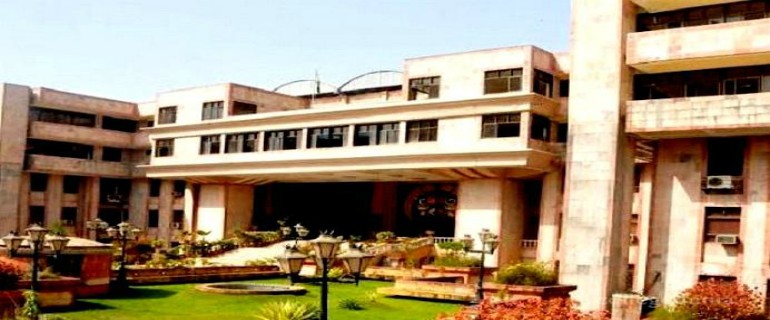ICAR-Central Institute of Fisheries Education (CIFE) is a leading Fisheries University having a distinguished heritage and has nurtured many illustrious scholars and leaders over the years. In over 50 years of existence, CIFE has emerged as a centre of excellence for higher education in fisheries and allied disciplines. The Institute was established on 6th June 1961, under the Ministry of Agriculture, Govt. of India with assistance from FAO/UNDP. It came under the administrative control of Indian Council of Agricultural Research (ICAR) on 16th April 1979 and subsequently, the scope and mandate have been widened to include education, research and extension.
Recognizing the pivotal role played by CIFE in human resources development in fisheries, the institute was conferred the status of Deemed-to-be-University on 29th March 1989. Encouraged by the new status, the University grew by leaps and bounds. Building professional capabilities and competencies of more than 4000 State fisheries extension and development personnel since 1961, the emphasis has always been on quality education. Now CIFE is a knowledge powerhouse and a brand name in fisheries higher education.
From a modest beginning in 1961, CIFE is now located in a new campus with state-of-the-art facilities and is looking forward to the future with great optimism and excitement. As a leading university, CIFE seeks to innovate and adopt best practices in educational and research programmes that prepare students to be leaders in the respective domains. CIFE has created an ecosystem of teaching and research excellence making it a preferred destination of students. The breadth of disciplines and collaboration among constituent institutions give unparallel opportunity to students to cross departmental boundaries and explore different horizons.
The University has two campuses one at Yaari Road and another close by at Seven Bungalows, in Mumbai. The new Yari road campus (three floors and basement) houses scientific divisions, chambers of the Director and Joint Director, Academic and Accounts sections, Conference hall, Community hall, Aquarium, Examination and Academic cells, Library building, Staff quarters and Ladies hostel etc. Wet labs, ponds and hatcheries are also developed in Yari road campus. The old campus at Seven Bungalows houses three divisions, laboratories, classrooms, computer cell, committee room, auditorium, workshop and museum. These two campuses are a kilometer apart from each other at Versova. The University with its headquarters at Mumbai has four centres at Kolkata (West Bengal), Kakinada (Andhra Pradesh), Powerkheda (Madhya Pradesh) and Rohtak (Haryana) near Delhi. The Institute’s field facilities include 20 ha Freshwater Fish Farm at Powerkheda (Madhya Pradesh); 9.0 ha Freshwater Fish Farm at Balabhadrapuram (Andhra Pradesh); 7.5 ha Brackishwater Fish Farm at Kakinada (Andhra Pradesh), 4 ha Freshwater Fish Farm and 10 ha Ground Saline Water Farm at Rohtak for training and research in aquaculture. The Institute has two training-cum-research vessels viz.: M.F.V. Saraswati (36 m OAL) and M.F.V. Narmada (11 m OAL) for training and research in marine fisheries.
The “National Library for Fisheries and Allied Sciences” at CIFE is housed in an expansive area and provides a serene setting for literature search and reading. It has a rich collection of books, journals and online databases. An Online Public Access Catalogue (OPAC) provides information about all the available publications. The library has a collection of about 35,000 books along with 135 e-books and subscribes about a hundred foreign and Indian journals. The digital section of the library is equipped with 28 computer terminals connected to LAN and internet. The ongoing NAIP project “e-GRANTH” aims to digitize the in-house publications and to connect different libraries of ICAR and State Agricultural Universities.
All class rooms are equipped with modern audio visual aids. The laboratories have advanced facilities for providing effective learning environment. A campus wide LAN facility provides round the clock internet service with high speed broadband connectivity. CIFE has a modern auditorium, conference hall, committee room equipped with the latest audio visual equipment for hosting seminars, conferences and cultural functions. Video conferencing facility connects CIFE and its centres with several academic institutions across India and the world making seamless real-time interaction possible.


